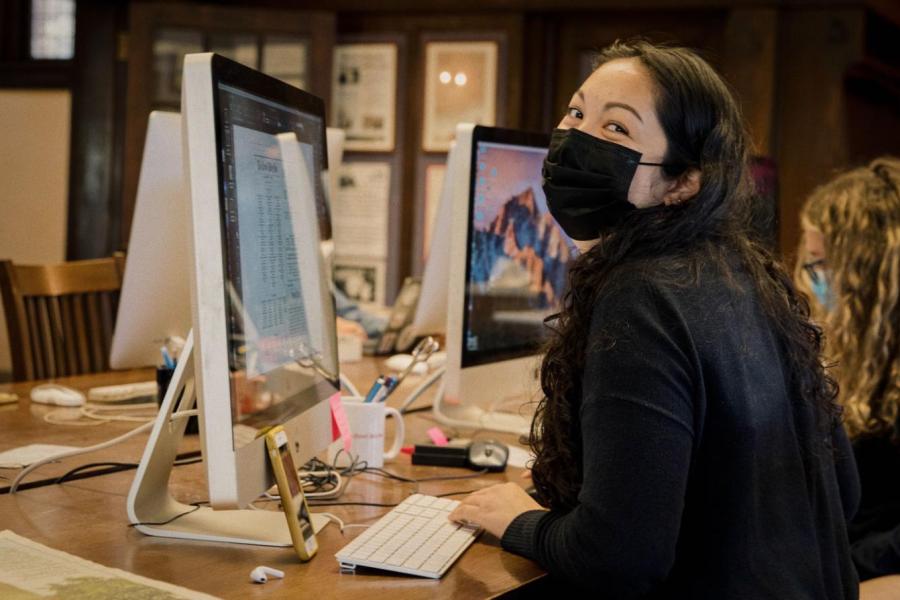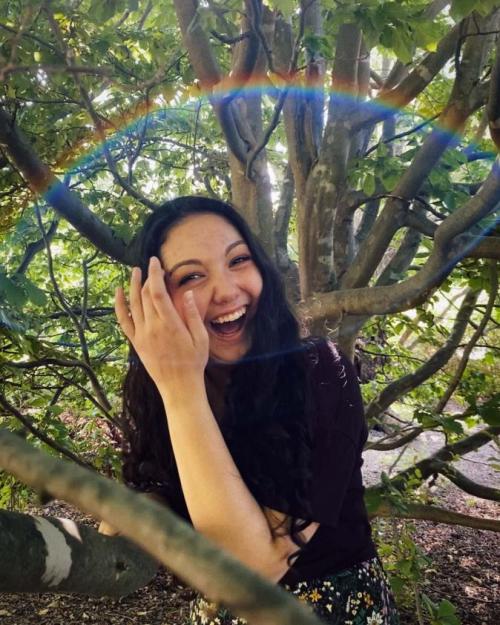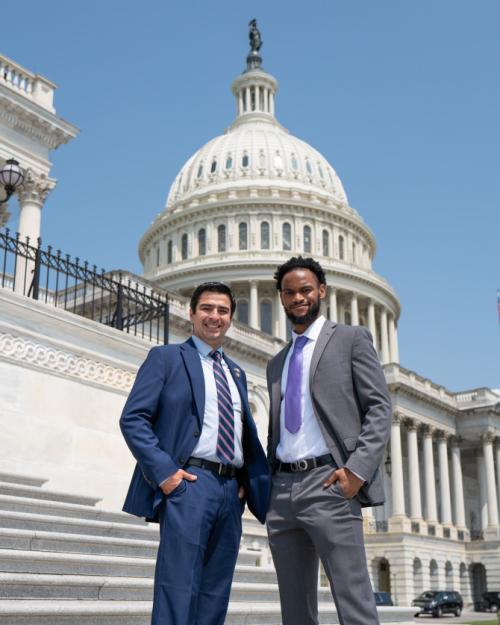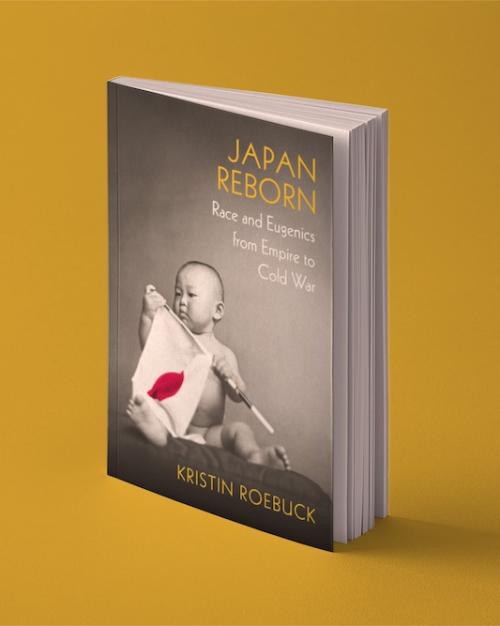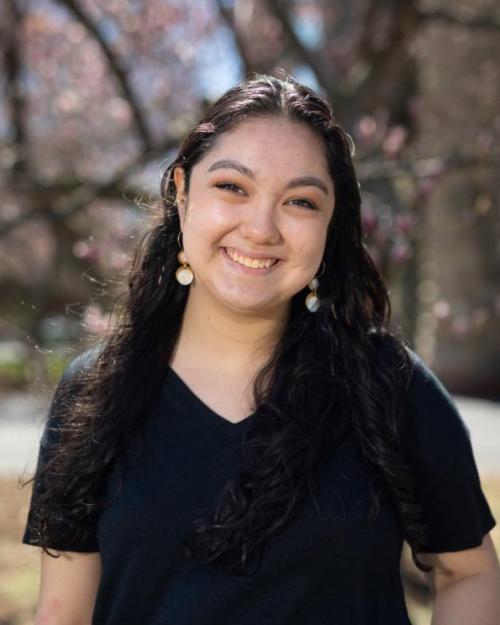Kathryn Stamm
Literatures in English and American Studies
Evansville, Ind.
What are the most valuable skills you gained from your Arts & Sciences education?
I entered college telling my friends I wanted to learn to read and to learn to write — answers that evaded the answer of my intended major and made my friends scoff since they knew me as a “good writer” already. But I think in many ways that’s what I gained from my Arts education: I learned to ask questions from curiosity rather than a need to be right, I learned to write clearly and concisely (and quickly) about everything from medieval conceptions of self alongside Lil Nas X’s “Montero” to critical analyses of integration of American schools, mixed identity in memoir to my own experiences of identity. I learned to read to understand: the author’s perspective, the issue at hand, the world. And I learned to do all of these things with empathy and an eye toward justice over rigidity and a need for objective truth.
What is your main extracurricular activity and why is it important to you?
The thing that consumed every second in between classes, eating, and sleeping — and sometimes getting in the way of them — was The Cornell Daily Sun. I joined because I was a first-year looking for extracurriculars, because I wanted friends and things to do, and because the culture of Cornell clubs felt inaccessible without prior experience. Someone in one of my classes mentioned writing a story and I thought I could swing high school yearbook as experience, and attended an information session where they said that anyone could join. I said "yes," and never stopped saying "yes" to every story assignment and task asked of me. At The Sun, I found a dire and pressing need to uncover and tell the stories of the people who live, study and work up here on the Hill — to connect us better to each other and ground us in the community we’re a part of. I wrote and edited stories about everything imaginable and did so because it was something beyond myself and my own perspective. I learned how to steer a newspaper and lead a team, how to manage crises and solve problems and how to act in service of knowledge.
What have you accomplished as a Cornell student that you are most proud of?
For three years, I was a peer facilitator for the Intergroup Dialogue Project. I joined after taking a fateful orientation session, sending an infamous email and taking their course my first semester on campus. I have facilitated something like 100 sessions since then, ones in passing as workshops and ones dedicated to my students in a given semester. I started unsure if I was capable and worried that I would destroy the program if they gave me my own class, but the program instead was the container for all of my growth over college. The mentorship of the teaching team, the learning with my fellow facilitators and the community and friendship of all the “IDPeople” guided my education. I am so proud of my own development as a teacher and as a learner, and I am proud of what I was able to give my students through my facilitation. I have always deeply believed in IDP and contributing research for them gave me even more proof of the impact that we have.
What Cornell memory do you treasure the most?
I think of the countless moments where I felt part of a community at Cornell. Before the pandemic, I worked at the Resource Center in Willard Straight Hall, sorting mail for student organizations and serving free popcorn. The passing interactions with stressed students, reminiscing alumni and lost visitors filled my experience with connection and unexpected joy. Asking people how their days were and if they wanted butter on their popcorn meant that I got to ask my fellow Cornellians to pause, even if all they were looking for was a free snack. After coming back on campus, when the Center shuttered, I started working at Zeus, where I insisted that I do the same while scooping soup even in the busiest of lunch hours. These memories of getting to serve people, remember their orders and smile meant so much at a university as busy as Cornell, when it’s normally so hard to actually see each other. I’m grateful for these spaces and for the “clients” (as we joked) who indulged my questions of what kitchen utensil they’d be and what color they felt like today.
Every year, our faculty nominate graduating Arts & Sciences students to be featured as part of our Extraordinary Journeys series. Read more about the Class of 2022.
